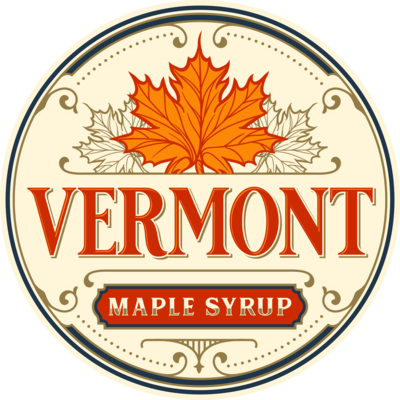“Vermont” and “maple syrup” are three words that sound perfect when spoken together. This perfection is mirrored in the more literal, real-life connection to a beautiful product with cultural ties and wonderful history. It is, in this sense, that the cultural heritage and history of Vermont’s maple syrup give any locally produced botte its quintessential ring and nostalgic feeling. But what exactly separates Vermont from other states? Why choose Vermont over other syrup producers, and why is the syrup state so special?

Photo credit: Kris Radder — Brattleboro Reformer
The best maple syrup always comes from small, local farms: quality can vary greatly depending on where it is produced and who is producing it. This fact primes Vermont, with its vast maple tree stands and perfect climate, to lead the U.S. in syrup production, which it does. Local Vermont farmers annually produce 2.5 million gallons of maple syrup, which equates to roughly 50% of all domestic maple syrup production (1). Given that most domestic produce in Vermont is small-farm sourced, there is no shortage of quality maple syrup.
These local farms play an important role in the state’s syrup industry. Local farmers, each with family and cultural ties to the land, all offer a product unlike any other.
What makes Vermont maple syrup so special?
The short answer is that a large number of independent farmers give Vermont maple syrup its unique charm. As previously mentioned, The best maple syrup always comes from small, local farms: but why?
Local farms, as opposed to larger brand-name companies, have a more hands-on approach to the entire production process. Local farmers are able to monitor sugaring trees carefully, ensuring that they are only tapping them when they are at their optimal sap production levels. Additionally, small farms are able to use more traditional methods of production, which often results in a superior flavor and consistency. Furthermore, because these farms are smaller, they are able to focus more on quality rather than quantity, resulting in a product that is truly exceptional.
Larger companies prioritize quantity over quality
When it comes to larger companies like Costco’s Kirkland Signature 100% Pure Maple Syrup, consumers really aren't sure where they’re getting their syrup from. Costco tells its consumers that its syrup is produced in Quebec, but that’s about all the information it hands out. But for $14.99 a bottle, wouldn’t you want to know more about where, how, and who makes your maple syrup?
As it turns out, it is no accident that these major companies hide their production information. To keep costs down, large shelf companies will source and combine syrup from multiple farms in the Quebec area whose names never make it onto packaging labels.
This results in some uncertainty when buying big named labels. Transparency is very important in any food-based industry. Not being able to know directly who or how your product was made is an easy way to receive a poor-quality product, as there is no farm to be held directly accountable.
Vermont farms make craft syrups
Because of the highly-competitive nature of individual syrup producers, some Vermont maple syrup producers have innovated and created what is known as “specialty” or “craft maple syrup.” These varieties encompass non-traditional flavors and elements into the production process, yielding a product that stands out from normal varieties.
Some examples of Vermont craft varieties include bourbon barrel-aged, salted caramel, smoked, blueberry, cranberry, apple, honey, peach, and even elderberry-styled syrups.
These varieties have each resulted from adding organic flavoring to an already-finished product. Craft varieties are an excellent example of using competitive-based ingenuity to give an already unique product even more local charm and character.
Other maple products
Aside from craft maple syrups, local Vermont farms are able to focus on niche products, like maple creams, sugars, beverages, beauty products and candies. These related products further develop an already diverse industry by introducing unique and useful products for consumers. These “niche” products always prove to be a hit to consumers who enjoy the benefits of maple syrup in non-traditional ways, proving that maple syrup is more than just the ultimate pancake topping.
Larger companies that experience tight profit margins will simply not produce these products because of the limited demand and high production costs, meaning it is again up to local farmers to produce these locally sought-after products.
Leaving it up to Vermont farmers, who know their syrup, seems like the best practice when buying real maple syrup.
***
Vermont Maple Syrup makes the best organic Vermont maple syrup, maple sugar, and maple candy you will taste. In classy, nostalgic packaging that puts Vermont first. Organic, pure small-batch maple syrup and maple sugar — tapped, collected, and made available from our 1,200-acre farm in the small town of Guilford, Vermont, USA.










